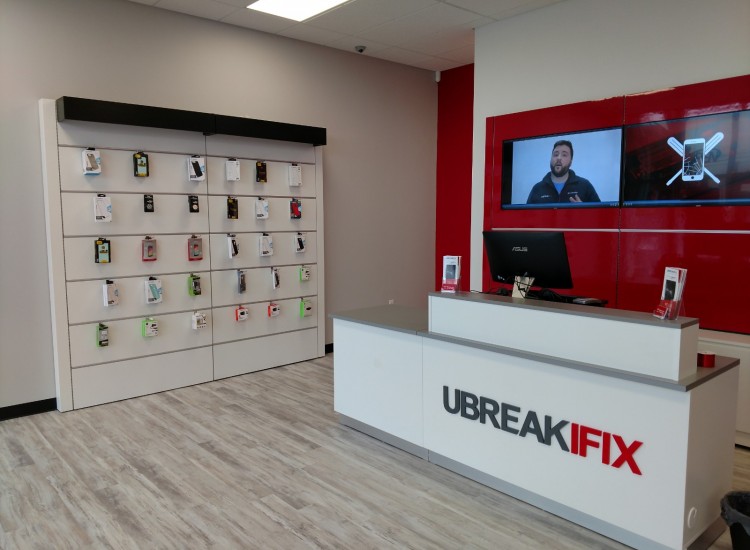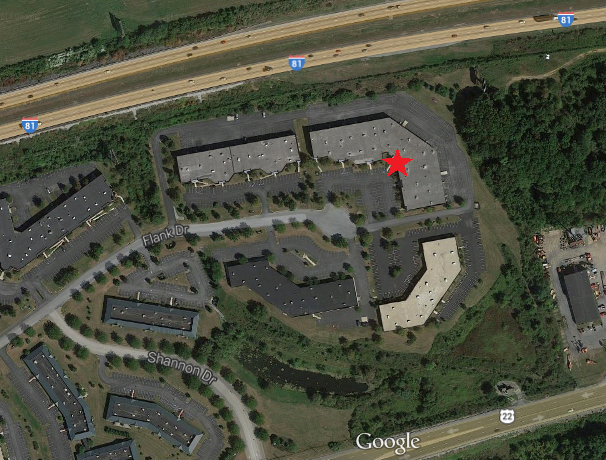At Omni Realty Group, it’s our passion to work with Central Pennsylvania businesses to help them find the right commercial space where they can thrive. One of our recent clients, uBreakiFix, provides a perfect example of how working with a tenant representative, like Omni, will have a big impact on the searching, negotiating, and commercial leasing process. Here’s how James McNeil, owner of uBreakiFix in Mechanicsburg came to find a new home for his business with Omni’s assistance.
About the Business
First, let’s learn a little bit more about the business and its retail needs. uBreakiFix fixes electronic devices. From the all-too-common phone drop in the parking lot to the tablet in the toilet, they’ve fixed just about every drop, slip, trip, and fumble you can envision. Those suffering the “trauma” of a broken electronic device, can walk into uBreakiFix and seek repair right on the spot – often in under one hour.
When looking for the right retail location, James knew he needed a space with high visibility and drive-by traffic. Ideally, the store would have other stores or attractions nearby where customers could browse or relax while their device was being fixed. Finally, the location needed to hit the right demographic of uBreakiFix’s target market.
Search and Struggle…then Success!
James started on his search solo. He poured hours of his time into researching possible locations. And after spending even more time touring many different properties, he came up empty handed. Fortunately, James reached out to Omni Realty Group and Mike Kushner became his tenant representative to help him in his search. Within a couple of weeks, Mike found what would become the business’s future home.
Located at 4957 Carlisle Pike, Mechanicsburg, this retail space met all of the “must haves” on James’s list. The store is part of the newly built Hampden Shops Plaza on the Carlisle Pike, one of the area’s most heavily trafficked roads for retail shopping. Within the plaza, there are places to eat, shop, get your hair cut, and much more. Rite Aid and CVS are within walking distance as well. Best of all, since it was a new space, uBreakiFix could really make it their own, by influencing the interior layout and décor.
Life Takes Compromise
The number one benefit of this space, and ultimately why James knew it was the right spot for his business, was location. It put him exactly where he wanted to be – visibility, traffic, and target market. But with anything, there was a compromise. The price point for the space was at the top of James’s budget. With Mike’s help, they negotiated this to a fair and reasonable rate that was consistent with other pricing in the area. Ultimately this was a compromise James was willing to make, considering all the other benefits of the space that would put them in the best possible position to grow.
The Difference of Having a Tent Representative
In his own words, James describes his experience working with Omni Realty Group:
“Mike did the research on the area and provided all of the relevant data to make the best decision for us. He got me in front of decision makers for the properties we look at and helped negotiate the lease payment to get the deal done. From a personal experience, it would have taken me a lot longer to find a location, as I was looking for retail space for four months, with no success, prior to working with Mike.”
Valuable Lessons Learned
If James had to go through this process again, there are valuable lesson he would apply to his next search for retail space. Here are four things he feels every business should know:
- Start the process with a tenant representative by your side. This alone will save you so much time, and in the end, money.
- Do not jump on the first option presented to you. Continue to explore even just a few more options and then fully compare pros and cons.
- Always negotiate.
- Compromise is necessary, but make sure you do not compromise on something that is most important to you.
If your business is looking for new retail, office, or industrial space in Central Pennsylvania, please reach out today so Omni Realty Group can help you like we helped uBreakiFix.







